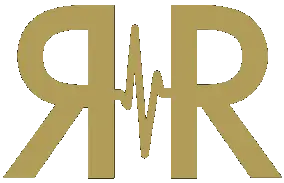Looking for a job can be difficult – there’s no secret about that. You send out application after application, hearing nothing in return, or, on the occasional bite from an employer or recruiter, you end up not proceeding to the next step(s), whatever they may be. That can be disheartening. There are some ways for you to get a few more bites with each application. To do that, the most important step is to tailor your resume to each individual job application. Aside from tailoring your resume, there are a few other ideas that could get your best foot forward and in the door.
Tailor your resume to each application
Before applying, take some time to read through the job description and pull out keywords from the roles, responsibilities, and qualifications sections. This means all of the keywords, however small, minute, or inconsequential they seem. Not some keywords or most of them, but all of them. If you do not want to do this task yourself, you can utilize resources like Teal or various text analyzing AI softwares to pull out the keywords in the job description. Once you do that, you need to find ways to incorporate them into your own resume. That may include rewriting your resume some.
For example, if the job description calls for a “Talent Acquisition Coordinator” but you have “Recruiting Coordinator” on your resume instead, change it to the appropriate verbiage to match the role. Aside from proper nouns (like place or project names) and titles, it’s your resume, so you can adjust it if you see fit and as needed for your purposes. The best areas to tailor your resume are your overview, career highlights, and expertise. You don’t have to change your entire resume, but focus on those pieces to better align with the job description. The more keywords you can take from the job description to tailor your resume, the better. This is easier for an ATS to track but it also shows a human reviewer your skillset and passion for the project, industry, or role. While this task may not seem like fun, you’re bound to get better results than just submitting a general resume to dozens of different organizations.
Tailoring your resume to each individual job application is probably the most important feature of any successful job search. If you want (or need) to find a new role, this is your best first step.
Identify Hiring Authorities to Tailor Your Resume
Once you have tailored your resume, utilizing resources like LinkedIn to identify who at the company will be making the hiring decisions. Once you do that, reach out to them. These individuals and connections are invaluable to your job search. Aside from them potentially being the way for you to get noticed by the organization, you can ask them about their experiences working at the company, the hiring process, traits of success in the role or organization, or whatever else you want to know.
NETWORK, NETWORK, NETWORK
No matter who you talk to in the job recruiting or searching space, everyone will tell you the same thing: network. Networking is possibly the most important aspect of a job search after tailoring your resume. Seriously – this skill cannot be oversold. Find ways to utilize your existing networks, be they college alumni, recreational sports teams, old jobs, parent-teacher groups, volunteer partners, or anything else you partake in. You never know who you’re in the same room with.
Likewise, referrals can absolutely take you places. Inform those close to you that you are on the lookout for a new role. Maybe they will be willing to serve as a reference or endorse a skill or two on LinkedIn. Whatever the case maybe, your network is there for you to fall back on. And return the favor. When someone in your network is laid off, reach out to them or help in some other way to get them on their feet. Kindness goes both ways.
Tailor Your Follow Up
Workers are busy and may miss some messages. If you don’t hear back from someone you’re trying to network with, don’t worry! It’s okay to follow up. Stand out as much as you can, too. If you all talked about a specific item in a previous conversation or interview, bring it up. As important as it can be to tailor your resume to a role, it can be equally as important to tailor your conversations or follow ups. The same goes for a thank you note after an interview. Job search can be rough but the sooner you can get out of it, the better off you are. Take the time to give the search its due.




